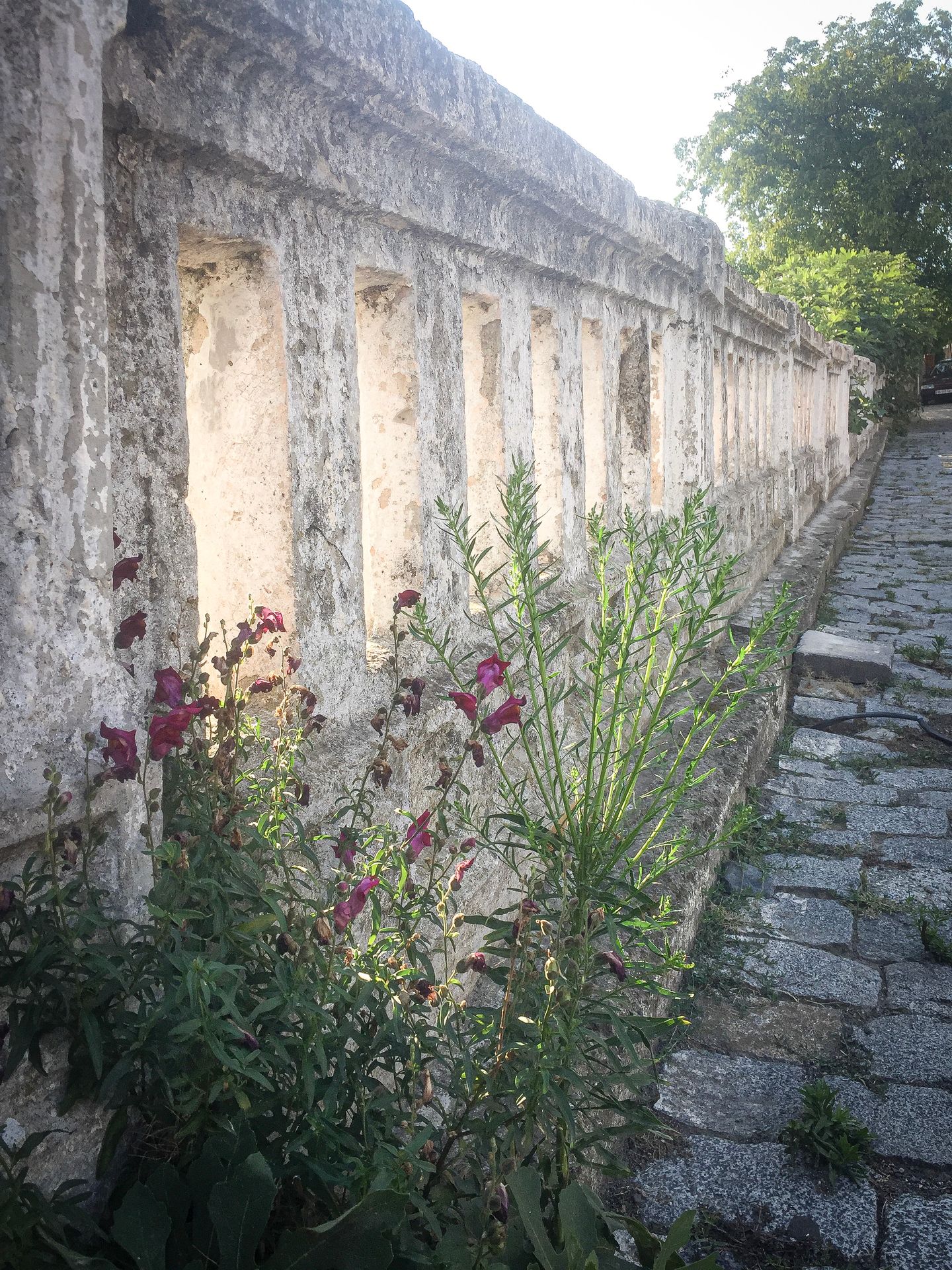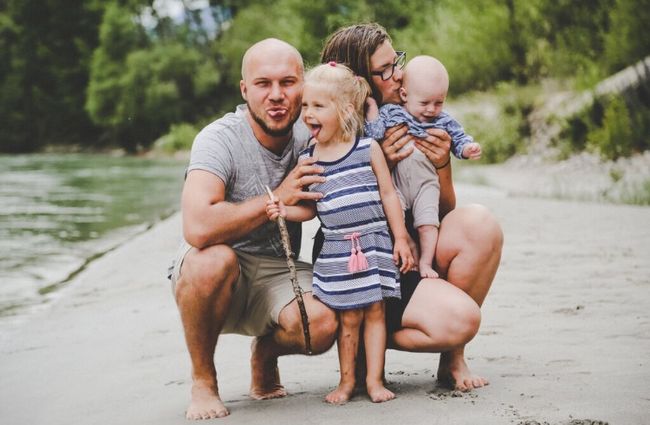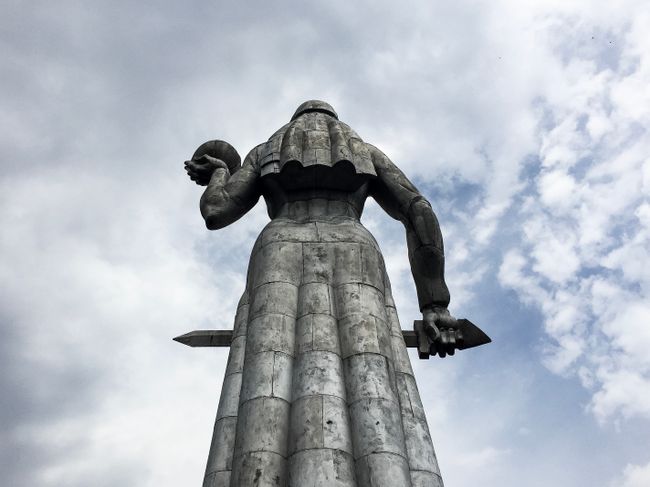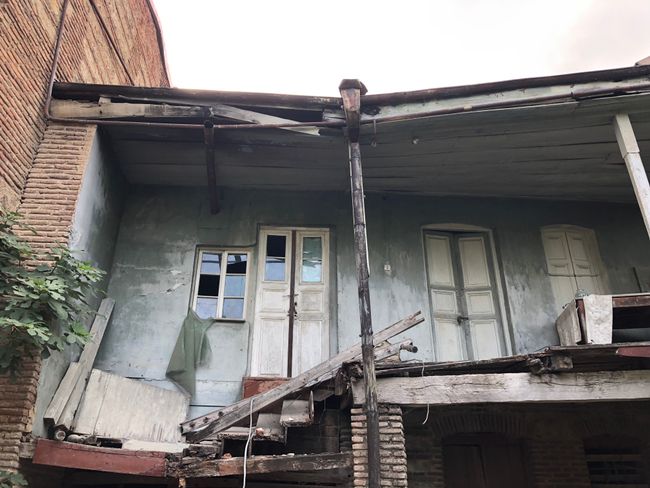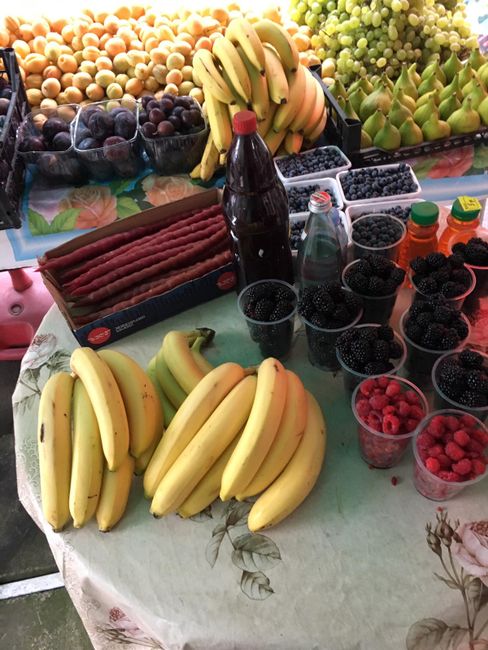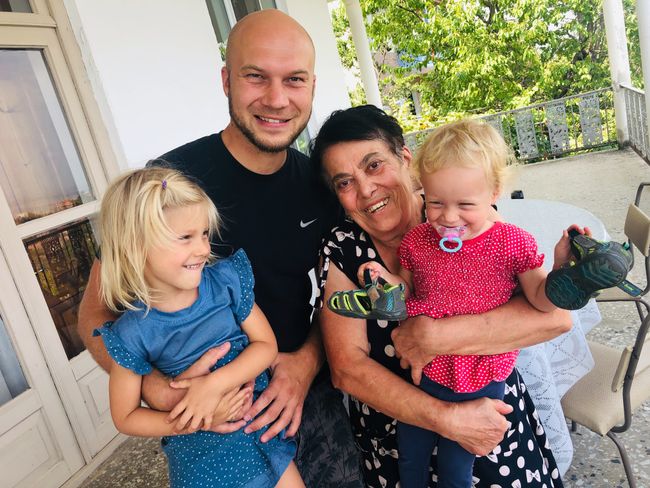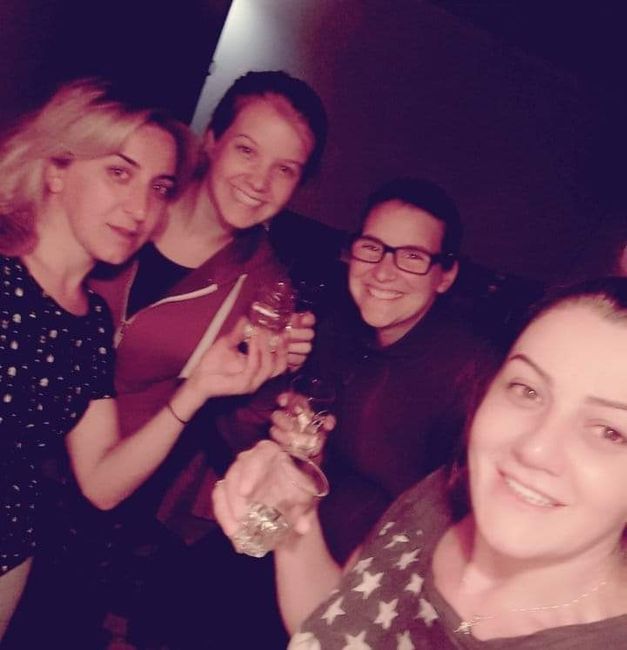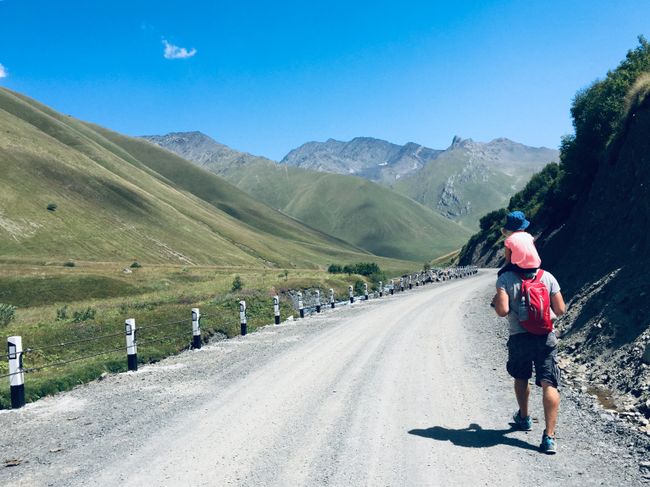Georgia on my mind
Chop etilgan: 27.08.2019
Axborot byulleteniga obuna bo'ling
These were beautiful days, weeks - and we are leaving the first stop of our great journey. Georgia. Just as you often asked us incredulously 'Why Georgia?', we now think: 'How could it be anything other than Georgia?' But it wasn't always like that.

We also didn't know exactly what to expect from this distant country in the Caucasus - something between mountains, wine and hospitality, and Soviet remnants combined with beautiful nature. We only knew that we were ready for something new. Yes, we gave up direct access to the world's best healthcare system, detailed and well-thought-out infrastructure, clean sidewalks and smooth roads when we left our lives in Switzerland. That was clear to us. But the first days in Georgia were
a shock.
We arrived in Kutaisi by plane, the second largest city in the country. We didn't see much of the airport, because we were immediately thrown onto the street by the rush of people. An energetic taxi driver, whom a friendly local organized for us, apologized for the fact that there are no child seats in Georgia and took us to his rickety Mercedes. As he drove, he spoke to Didi in his impulsive manner in Russian and even took both hands off the steering wheel to illustrate something. My heart skipped a beat. We drove past burning rubbish bins, dilapidated houses, puddles of mud, and an incredible number of people who looked like they were 'lounging around'. It could have been somewhere in India in a slum, in my eyes there was no difference at that moment. As we drove through the city, avoiding potholes and passing really terrible and inhumane apartment buildings, I wondered if I could really feel comfortable and safe here. The constant drizzle of rain didn't exactly help me answer that question with a 'yes'.
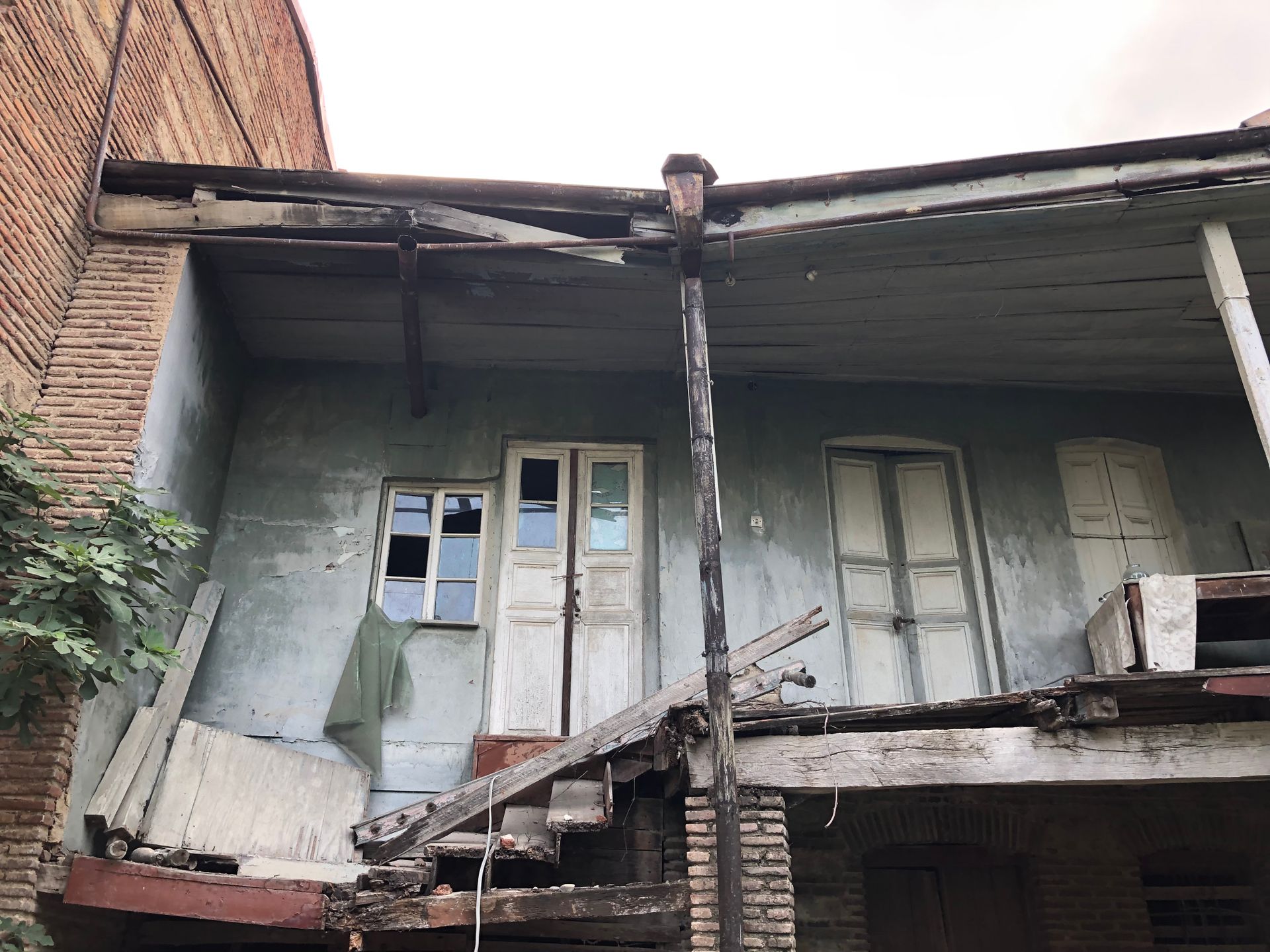
This fear - of being able to survive in this completely unfamiliar environment, with a foreign language, a foreign script - was to last a while. But small comfort zones began to form before my eyes. Comfort zones. First, it was the apartment of the really nice family we stayed with. What looked like an old building from the outside turned out to be a lovingly renovated home on the inside. They took us in, the woman was a pediatrician, and I immediately felt a sense of security in my heart. A small seed. Civilization exists here, these people also have Facebook, jobs, and a family. We are not that different. The young house cat, which stared curiously at us, wasn't considered a rabies-infested animal to me, despite what I had read, so I petted it. When the family told us that the roads and sidewalks look so prehistoric because the entire city is a construction site and everything is being rebuilt, I was able to forgive that internally. But Georgia was still a rough developing country, full of unpredictable men and drivers.

Over time, my Georgia map was dotted with small hotspots of comfort islands. The accommodation, the nice kiosk owner on the corner (but right next to it dangerous curves and mysterious plants), the beach. Everywhere I encountered people who made me feel that we had something in common, a trust was established that allowed me to breathe freely. But that didn't change the fact that behind every curve I suspected an accident, behind every corner I suspected a scam. I could only really breathe when the images from Switzerland faded away.
The images of
what a road should look like
of well-kept front yards, perfectly mowed lawns
flawless apples
The images of village scenes that could be from a picture book. Of new apartment blocks, as if from a catalog.
of mammoth jackets
and sleek SUVs
and IKEA furniture
of people who look like me.
And when I forgot that
- deliberately forgot -
my perspective changed.
The roads became acceptable.
Not that bad at all.
The houses became nicer - considering how little money people have to live with, they do their best to make it cozy.
The cars are good, the bus infrastructure is great, the fruits in the store are fresh and delicious - and all organic. And the people. Helpful and open. And - very fond of children. It was only when I reached that point that I could open myself up to the impressions and moods on site. And appreciate them.
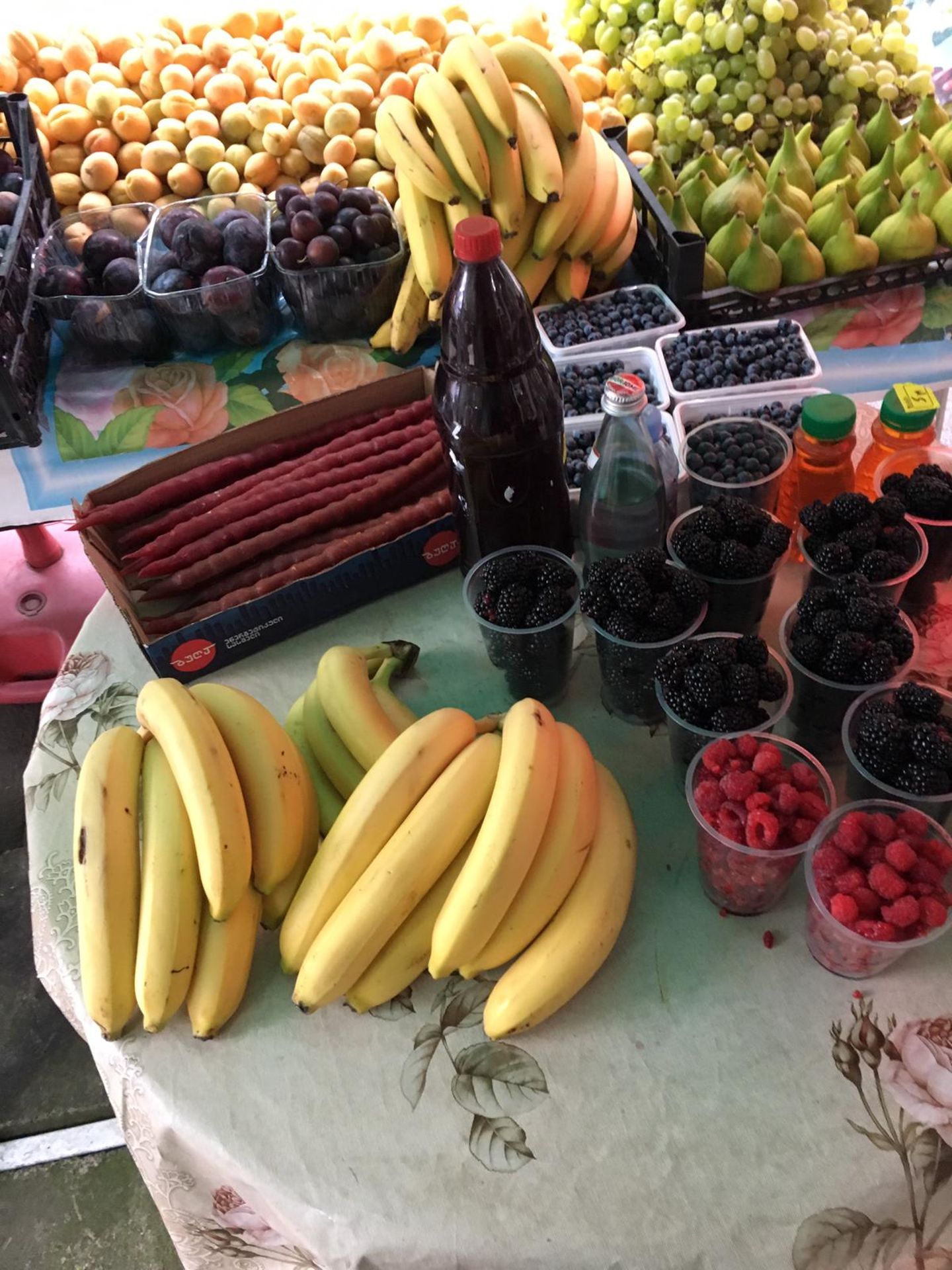
In our eyes, Georgia has become a friendly country. It is an impulsive friendliness - sometimes loud, sometimes indignant. We have experienced hospitality, being incorporated into everyday life. We have met depressed, resigned individuals - and lively ones.
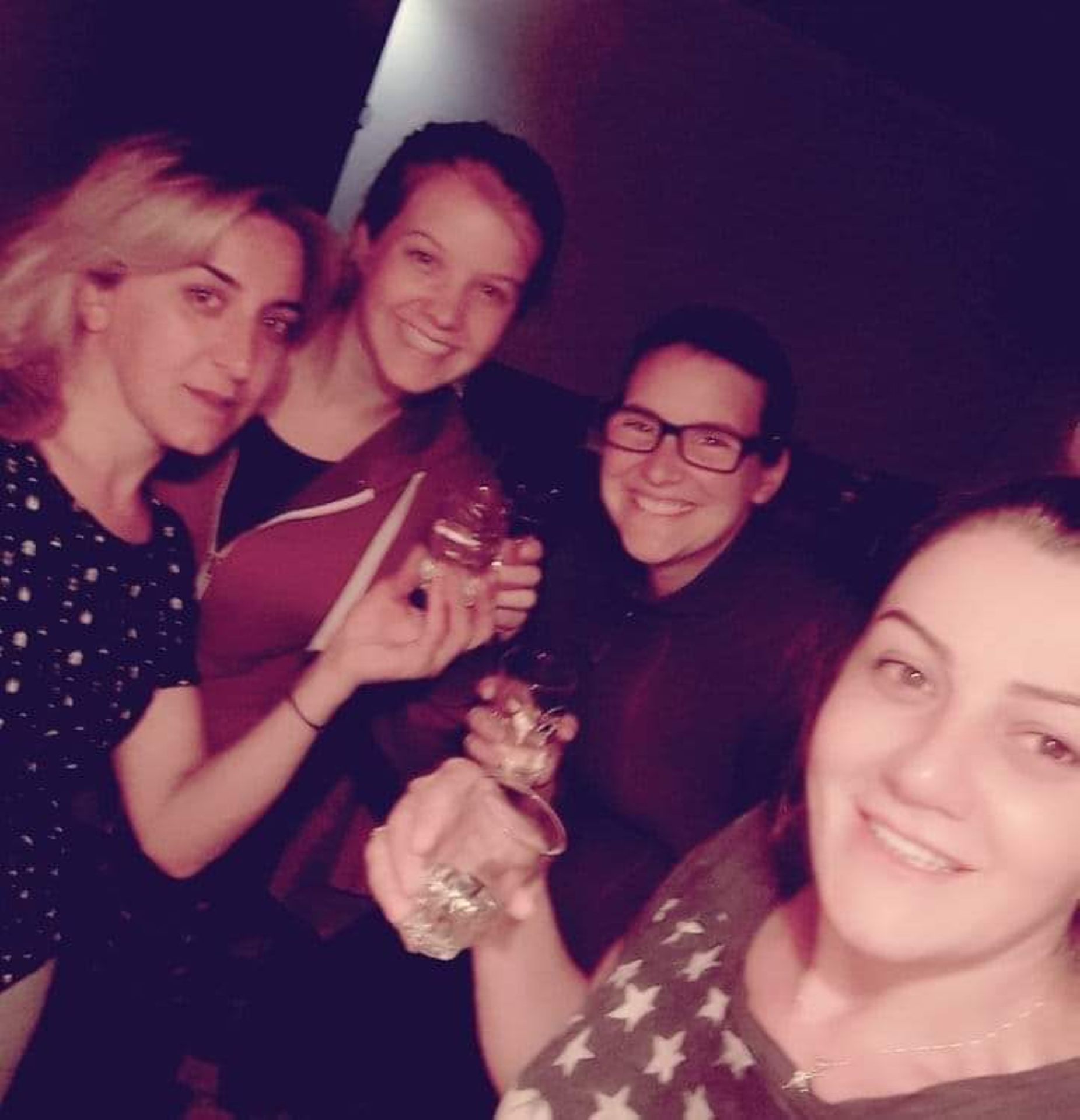
For us, the transition from perfect Switzerland (yes, that is retrospective) to Georgia was important. There are so many countries in the world without zebra crossings and with corruption. Without child seats. With stray dogs. We don't want to close our eyes to that. But Georgia was a good start. During the Soviet Union, important infrastructures were created here - electricity, gas, water, roads, healthcare systems, which laid the foundation for many post-Soviet countries. Today, Georgia is moving forward - even though many locals nostalgically told us how much better it used to be, we see it as a country on the path to modernity. The capital, Tbilisi, is hip and colorful, with probably everything from modern private clinics to shabby residential neighborhoods. There is a lot of tourist infrastructure - guesthouses, hotels, tours, and English menus. When you move among the stream of Arab, Chinese, and German tourists, you come across well-organized tours, people who are used to travelers, and functioning toilets. Although we try to take advantage of the benefits of these streams - we walk right beside them. Very close. Otherwise, we wouldn't discover the greenery by the roadside.
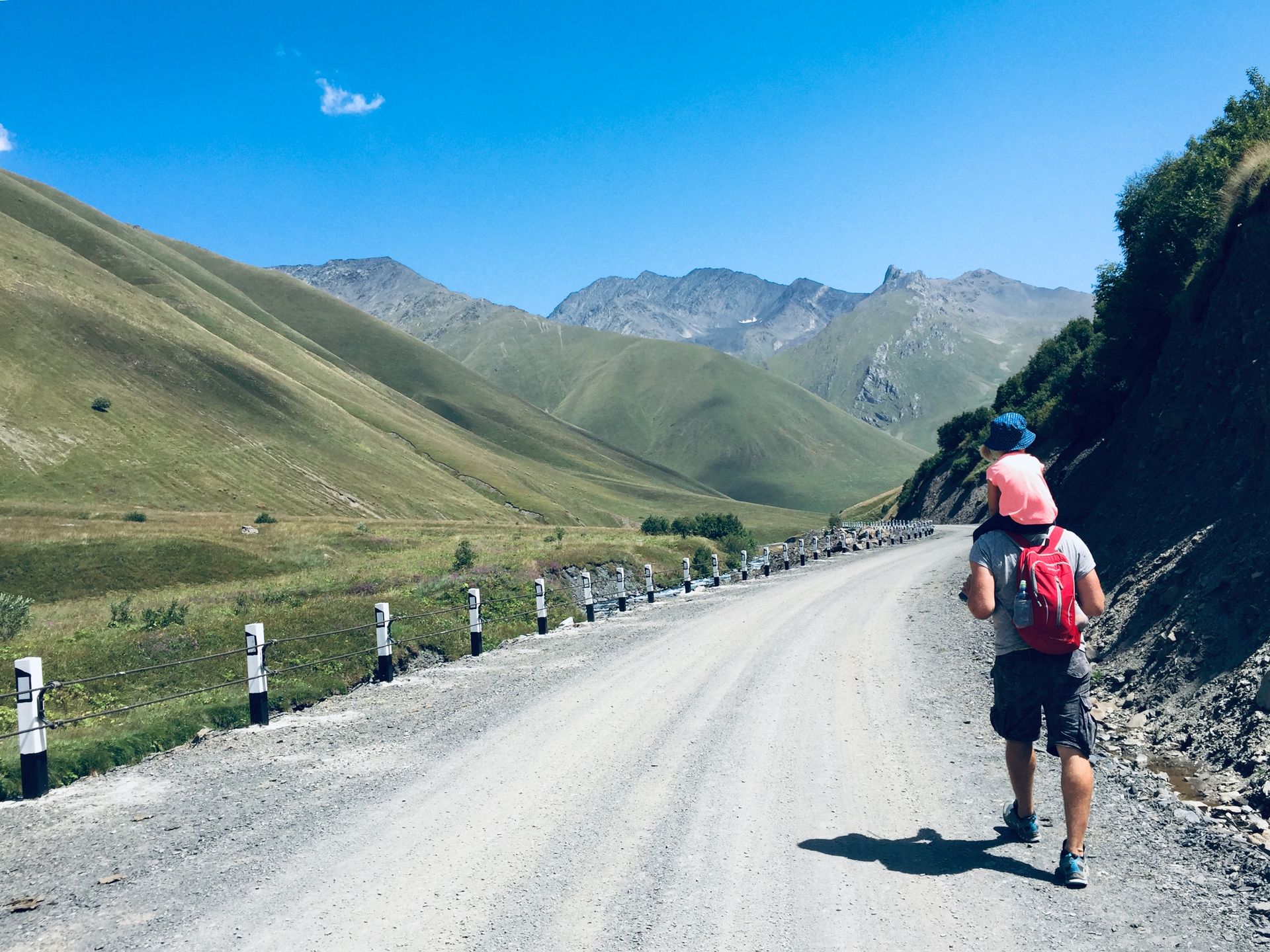
And so Georgia has been kind to us - the people here have been good for us. Hopefully, we have been good for them too.
Here, we have learned to adapt.
We watch our children on the street like an eagle watches its young. Most of the time, they have to walk hand in hand. For hours.
We no longer mind if other people hear us arguing. We hear them too.
Our girls go to bed later.
We wash everything we eat. We wash our hands and feet more than we were used to in Switzerland.
We don't gasp at every turn on the road. There are too many of them.
It is obvious that Didi sits in the front seat of the taxi and I sit in the back with the children. No discussion.
We don't ask about the occupation of the person opposite us and they don't ask about ours. Clear agreement.
We give our children more independence - on the one hand, because it seems natural to push 4-year-olds around in a stroller, but also because it's simply inappropriate to break something in a restaurant or guest room.
and
we look people
in the eyes.
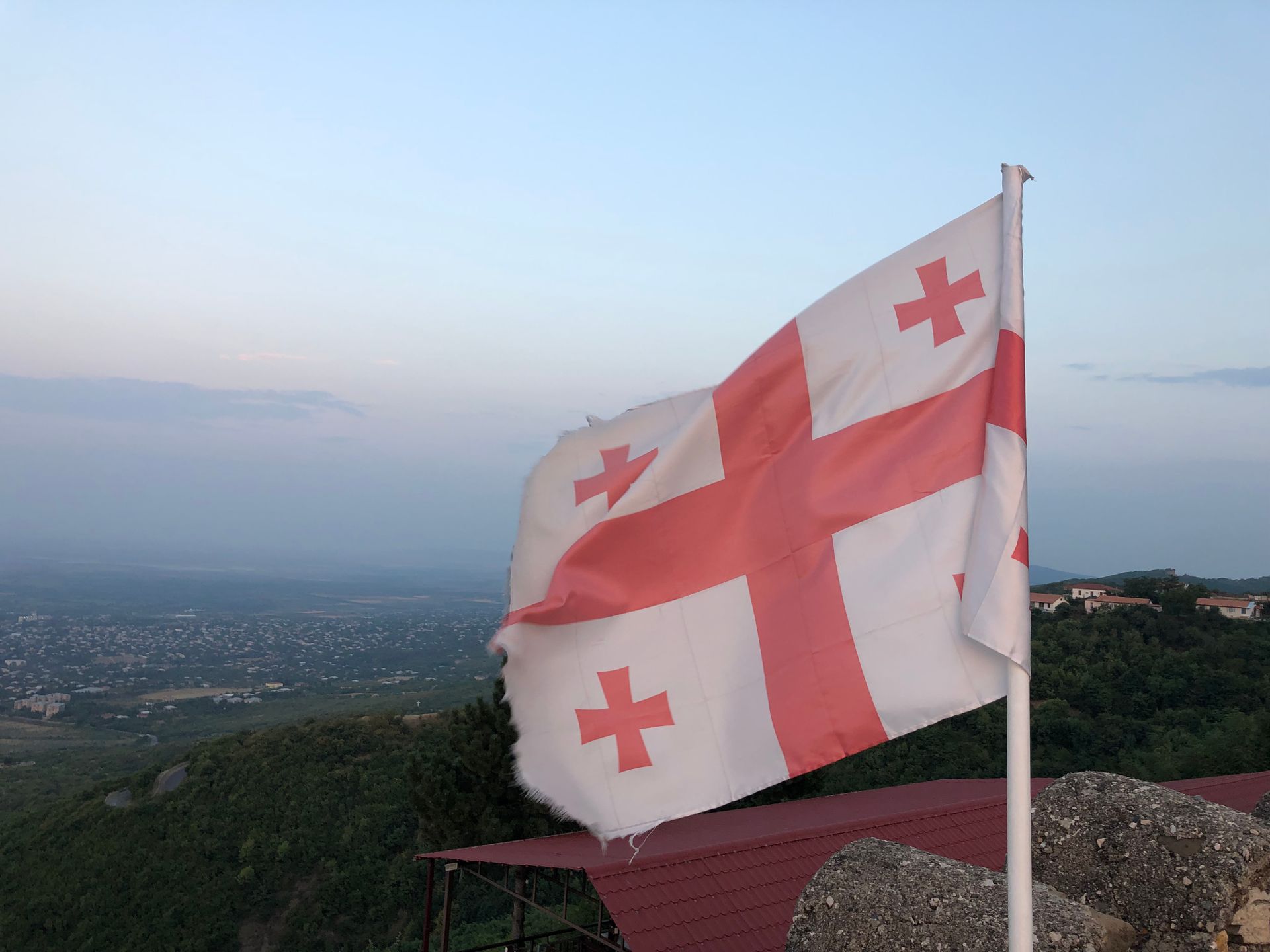
Thank you for your lessons.
Nakhvamdis, Georgia!
Axborot byulleteniga obuna bo'ling
Javob (2)
Marij
Oh ja,
Ich erinnere mich an unsere Ankunft in Santiago de Chile vor 25 Jahren. Alles war so „unsauber“, staubig, ärmer als wir gewohnt waren. Nach einer Monat Rundreisen durch dem Norden kamen wir zurück in der Hauptstadt. Und alles war so luxeriös. Unglaublich, das es noch ärmer gab als arm. Und gastfreundlicher als gastfreundlich.
Geniesst eure Erfahrungen, es ist schön von „normal“ mal weg zu sein.
Alles Liebe und Gottes Segen auf euren Weg
Marij Mahala
Danke dir für deine Eindrücke, Marij!